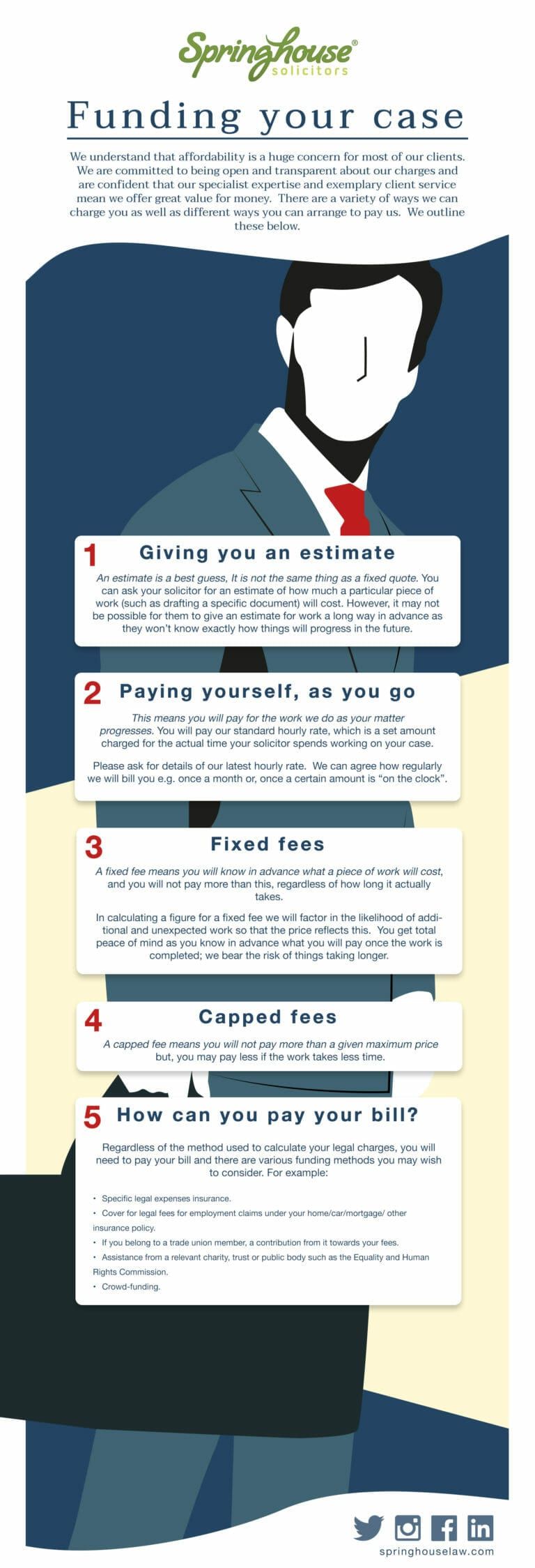Our team is ready to answer any questions
Book your consultation today
What different ways can I fund my legal bill?
Regardless of the method used to calculate your legal charges – and there are various different options such as a fixed fee or no-win-no-fee, you will need to pay your bill and there are various different funding methods you may wish to consider.
Ultimately, individual clients are responsible for settling their legal bills in respect of advice received from Springhouse, but how this is actually funded will vary.
One example, when it comes to advice related to a settlement agreement is that a person’s employer agrees to pay in full, or make a contribution to, the individual’s legal costs, as part of the settlement. This is usually recorded in the agreement.
While many clients settle their legal bills out of their own pockets, there are some other options, including:
- specific legal expenses insurance
- cover for legal fees for employment claims under your home/car/mortgage/ other insurance policy
- if you belong to a trade union, obtaining a contribution from it towards your fees
- assistance from a relevant charity, trust or public body such as the Equality and Human Rights Commission (where you claim is one which is relevant, for example in respect of harassment or discrimination)
- crowd-funding – using an online platform to ask friends, family or the wider public for contributions towards your legal fees. Monies are then sent directly to us to settle your bill.
It is always worth checking the terms of your household and motor insurance policies before your first appointment with Springhouse to find out if the legal fees for your case may be covered. People are often unaware that they have an insurance policy which includes cover
for legal expenses so, if you are not sure, speak to your insurer.
Relevant articles
For more information about how we charge and how to pay our bills, see our other articles:
The solicitor’s hourly rate explained
How to keep your legal bill as low as possible
Ten questions you should ask before hiring an employment lawyer
Work involved in preparing for an employment tribunal hearing









Get in touch
To speak to a qualified employment solicitor at Springhouse Solicitors, fill in the form below or call 0800 915 7777.
Please note we are unable to offer free advice.
Thank you for getting in touch. A member of the team will get back to you as soon as possible.
Please try again later.
Contact Us
Address:
Holborn Gate, 330 High Holborn, London, WC1V 7QH
Tel: 0800 915 7777
E-mail: hello@kilgannonlaw.co.uk
Keep Up To Date
Join our newsletter and find out more
Contact Us
Thank you for subscribing. We will keep you updated with all the latest news from Springhouse Solicitors.
Please try again later
Socials and Legal
Copyright: Kilgannon & Partners LLP



